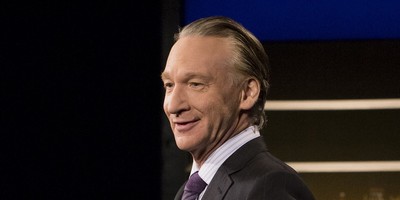The income gap and income inequality is a hot button topic in the United States that has taken center stage in political debates and college classrooms in recent years. Economic Nobel Laureates Joseph Stiglitz and Paul Krugman have argued in The New York Times that income inequality is a major issue that requires political action to remedy. President Obama even hails income inequality as “the defining challenge of our time.” So what real problems does the income gap propose for American citizens and the country’s future, why is it such a major issue, and what can be done about it, if anything at all?
There are four primary reasons that Joseph Stiglitz lays out that give worry about the income gap issue. The first is that the middle class is too weak to support the consumer spending that has historically driven economic growth. The second is that the middle class is unable move up socio-economically because they are unable to invest in their future by educating themselves and their children. The third is that the weakness of the middle class is decreasing the tax coffers, especially because those at the top are so determined to avoid taxes. Lastly, the fourth reason is that inequality is associated with more frequent and more severe boom-and-bust cycles that make our economy more volatile and vulnerable.
Even though Paul Krugman generally agrees that income inequality is an issue, he doesn’t fully agree with the degree of it’s negative effects that Stiglitz does. Disagreeing primarily with the first point about consumer spending driving economic growth and even giving a nod to Milton Friedman on largely debunking it. Specifically he states that it is a statistical illusion that fails to account for effects of savings on economic growth. However, despite these possible problems that even people on the same side of the argument cannot fully agree on, is the income gap in and of itself the real issue facing America or is there an underlying issue?
Recommended
It’s important to understand that income (measured by money) is not the same as wealth. Money is just a unit of measurement; by itself it has no real use. What’s the point of having ten trillion dollars if nothing can be purchased with that money? Wealth is stuff: a kitchen table, an apartment building, an iPhone. When people say that there is a major income gap, that doesn’t always mean there is a major wealth gap. Wealth, not income, is truly the only thing that actually matters to individuals because that is what determines their standard of living.
Any American earning more than $25,000 a year in income is in the top two percent of world income. Many of the 99 percent that are crusading against the one percent actually fall into this income level. Using percentages to frame debates on fairness and equality is a game of semantics. Using that logic one could argue that some poor helpless multimillionaire that happens to live in a neighborhood of billionaires is disadvantaged and should be supported by the billionaires. This is blatantly ridiculous. Let’s ignore the issue of money, income, and percentages and focus the real issue of wealth.
The real problem behind the income inequality debate shouldn’t be about the digits in one citizens bank account compared to another, but about the ability of citizens to gain wealth and a higher quality of living. America’s poverty line is $23,283 for a four person household according to the U.S Census Bureau. With that amount of money, Americans can still afford better housing than a super majority of citizens in certain African and South American countries experience. These Americans have access to more food than ever and don’t worry about being malnourished. These Americans have wealth.
The reason people in “poverty” can experience a level of wealth that is unprecedented in other countries today and even amongst the wealthiest of citizens over a hundred years ago is because of entrepreneurs and capitals that have found ways to make these good more affordable than ever. Companies throughout history like Ford, Walmart, Microsoft, McDonalds, and Standard Oil that have found ways of making goods more affordable and accessible to more people so that people with lower income can have a better standard of living.
Is income inequality a real issue that should require political intervention? No, it is not. Empowering entrepreneurs to continue to innovate and make goods more affordable is the key to a country’s and it’s citizens prosperity. The underlying issue in America is not income inequality, it’s government barriers and cronyism that prevents the middle class Americans from being able to easily start up businesses. By fixing regulations and lowering barriers to entry, and the income gap will fix itself.

























Join the conversation as a VIP Member